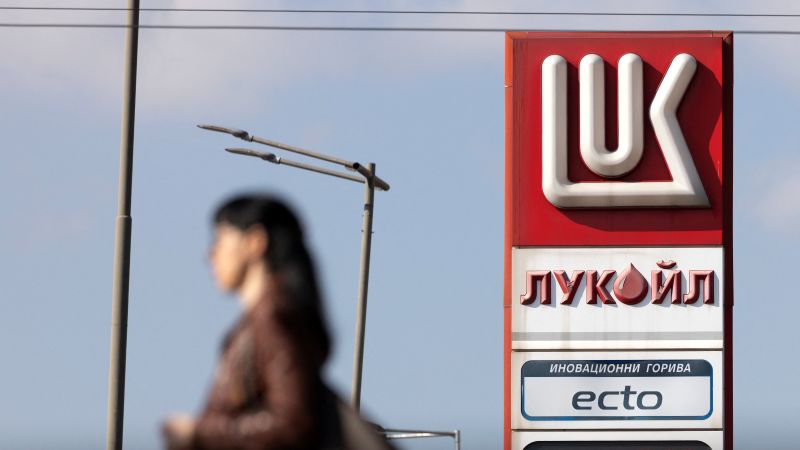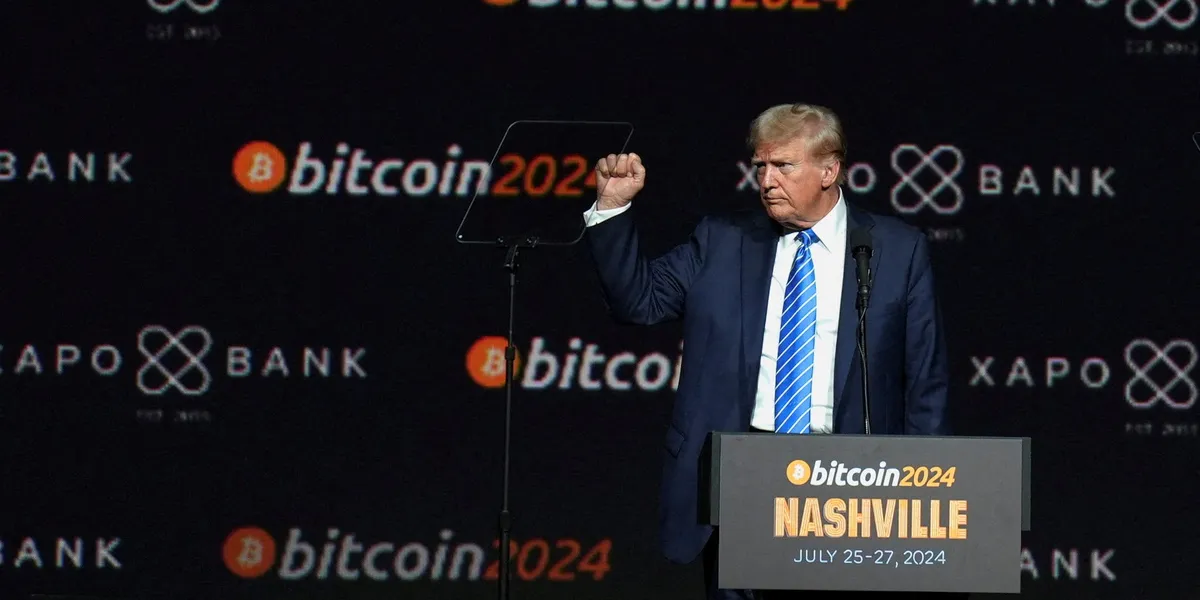Copyright Cable News Network

US President Donald Trump’s attempts to financially choke Moscow’s Ukraine war machine by imposing sanctions on Russian oil firms sent immediate ripples through offices in India and China. Some oil companies started canceling orders to beat a November 21 deadline following the sanctions of Russia’s two largest oil firms, Rosneft and Lukoil, according to industry insiders. Until now, the world’s two most populous nations, India and China, have largely resisted the American leader’s pleas that they stop buying Russian oil – and his threats of what might happen if they don’t. But early signs of adherence to Trump’s “tremendous” sanctions may just be a holding pattern, analysts say, as players figure out new ways to deliver and acquire cheap Russian black gold via a sophisticated workaround system that involves middlemen and a “shadow fleet” of tankers with opaque ownership. How hard Trump’s sanctions hit Russia could ultimately be decided in Asia. Between them, India and China import between 3.5 and 4.5 million barrels of Russian oil daily, a significant portion of which comes from the newly sanctioned firms, analysts say. Richard Jones, a crude oil analyst at Energy Aspects, said that 1.4 to 2.6 million barrels per day to India and China could dry up when the November deadline hits. For India, the sanctions present a familiar and tricky dilemma, pitting its enduring need for discounted energy and its legacy of friendship with Moscow against its deep and growing strategic ties with Washington. New Delhi is also holding out hope for a rapprochement with Trump after he slapped 50% tariffs on the country’s exports to the US, but its purchases of Russian oil have been a sticking point. For China, which has been a critical economic lifeline for Russia since the war started, the calculus will be about protecting its big oil firms, while balancing what it sees as a key geopolitical partnership with Russia and an interest in ensuring the war doesn’t end Putin’s rule. ‘Self-sanction’ As Western nations banned seaborne Russian crude after Moscow’s invasion of Ukraine, the Kremlin successfully pivoted east, finding an economic lifeline in China and India, who absorbed millions of barrels per day at a steep discount. A win-win scenario for them, but at Ukraine’s expense, in the eyes of the West. Both Asian nations consistently defended these purchases, framing them as part of their national interests to ensure energy security. But in the short time since the Trump administration announced its sanctions on Rosneft and Lukoil, there have been signs those sanctions are already beginning to bite. Sanctions “will inevitably bring costs to the Russian economy,” said Farwa Aamer, the director of South Asia Initiatives at the Asia Society Policy Institute. “The Kremlin will be closely watching who absorbs the share of Russian crude that India relinquishes as it pivots away, and for now, China may not have the motivation to expand its intake.” In China, Russia’s most steadfast economic partner, several state-owned oil companies have canceled some purchases of Russian crude, according to Janiv Shah, a Vice President of Oil Markets and Downstream Analysis at Rystad Energy. The hesitation is mirrored in India, where the country’s largest private refiner Reliance told CNN it would be “adapting the refinery operations to meet the compliance requirements” and was “fully committed” to its “adherence to applicable sanctions.” Reliance imported just over 181 million barrels of Russian oil between January and September this year, according to data from oil intelligence tracker Kpler. On Monday, India’s largest state-owned oil company, the Indian Oil Corporation, said it will comply with all applicable sanctions, according to the Press Trust of India. “For the moment, most Indian and state-owned Chinese buyers will effectively self-sanction for a cycle or two until they understand US enforcement intentions,” said Richard Jones, the crude analyst. But that might only be “until workarounds are found,” Jones said. “India is in a tougher spot,” according to Clayton Seigle, the energy and geopolitics chair at the Centre for Strategic and International Studies, because China’s market is more opaque and its firms are less afraid of being blacklisted by Washington. “In short, (India) got hooked on discounted Russian barrels. Reverting to their pre-war crude supply mix would mean more Mideast Gulf, West African, and even US barrels – at significantly higher cost,” he said. Non-compliance could present a major financial risk for the Chinese and Indian firms, as the threatened secondary sanctions could potentially cripple their ability to borrow from US banks if they were still buying directly from Russia. India’s foreign minister S. Jaishankar on Monday appeared to criticize Trump’s sanctions, calling the energy trade “increasingly constricted.” Without naming the US, he said “principles are applied selectively and what is preached is not necessarily practiced.” Geopolitical maneuvering For Beijing, the issue extends beyond energy security and represents a critical test of its “no limits” strategic partnership with Moscow and their shared goal of countering US global influence. “Given the US pressure, China will not completely ignore US demands, but it will not deliver everything the US wants either,” said Yun Sun, director of the China program at the Stimson Center think tank. “The bottom line is China will not abandon Russia.” There is also a chance Moscow and Beijing have already begun “private conversations” about “potential remedies or countermeasures,” according to William Yang, a senior analyst for North East Asia at the International Crisis Group. “I don’t see a scenario where China would simply decide to decouple from Russian energy sources, because that would inject a deep sense of shock into China’s own economy and industries,” he said. Since the start of the war, major Chinese firms and banks have largely looked to toe the line on US sanctions to avoid being slapped with secondary sanctions on their international business. Even while major Chinese state-owned enterprises may pull back, analysts suggest that smaller independent refineries, known as “teapots,” may continue to buy Russian oil through third-party buyers, though their ability to absorb additional quantities would be limited in the short term. How much of China’s total trade in Russian oil these refineries already account for is unclear, analysts say. China’s foreign ministry said on Thursday that the country has “consistently opposed unilateral sanctions.” New Delhi is yet to publicly comment, but the sanctions create a direct clash between two of India’s core national interests. India’s economic growth and energy security have become reliant on discounted Russian crude from a partner it shares a historical friendship with. But its growing strategic partnership with the US, which has deepened through the Quad security grouping, is equally vital to counter to its rival China’s growing influence in the Indian Ocean. This geopolitical calculus is complicated by immediate economic incentives. New Delhi is currently negotiating a trade deal with Washington, which would provide its export industries with a much-needed reprieve after the Trump administration’s earlier tariffs put millions of jobs on the line. Aamer, the Asia Society expert, said “demonstrating a tangible reduction in oil trade with Moscow, even gradually, could help seal the deal and become a key gesture of goodwill.” However, with Prime Minister Narendra Modi expected to host Putin in New Delhi later this year, any shift is likely to be a “tactical recalibration for now rather than a full strategic retreat.” Shadow fleet Lurking beneath all this geopolitical maneuvering is Russia’s “shadow fleet” – a strategic asset designed specifically to transport its crude outside Western oversight. The scale of this network has been expanding rapidly in recent years. An S&P Global report in May identified 940 unique ships involved in this fleet, a 45% increase from the previous year. The European Union, United Kingdom and the United States have each rolled out hefty measures to thwart the network, collectively blacklisting hundreds of ships. Since invading Ukraine, Russia has been able to sustain its crude exports despite the “logistical challenges” posed by sanctions, Kpler analysts noted earlier this month. And that is a reality that underscores the challenges of cutting off Russia’s oil revenue. After previous US sanctions on major Russian oil firms Gazprom and Surgutneftegas, Indian refineries simply adapted by buying the oil through a complex web of “third parties or intermediaries,” said Muyu Xu, a senior oil analyst at Kpler. The same process, involving layering transactions to obscure a cargo’s origin, could also be applied to Russian oil exports to India and China after the latest sanctions, according to Xu. “It’s just the changing of names and redirecting,” she said. “We would expect similar things to happen.” Most of that sanctioned oil would end up in the “opaque Chinese market and/or ‘laundered’ by trader tricks,” said Seigle, the strategic studies expert. Those workarounds would still hit Moscow’s revenues, he said, because it costs more to hide in the shadows. “The biggest X factor is not what the oil traders will do, but what Washington will do with regard to enforcement,” said Seigle. CNN has contacted India’s state-run Indian Oil Corporation Limited, Hindustan Petroleum Corporation Limited, Bharat Petroleum Corporation Limited and Chennai Petroleum Corporation Limited, and the Indo-Russian oil refinery Nayara Energy, for comment. CNN has also reached out to major Chinese state-owned companies including PetroChina, CNOOC and Zhenhua Oil for comment.



